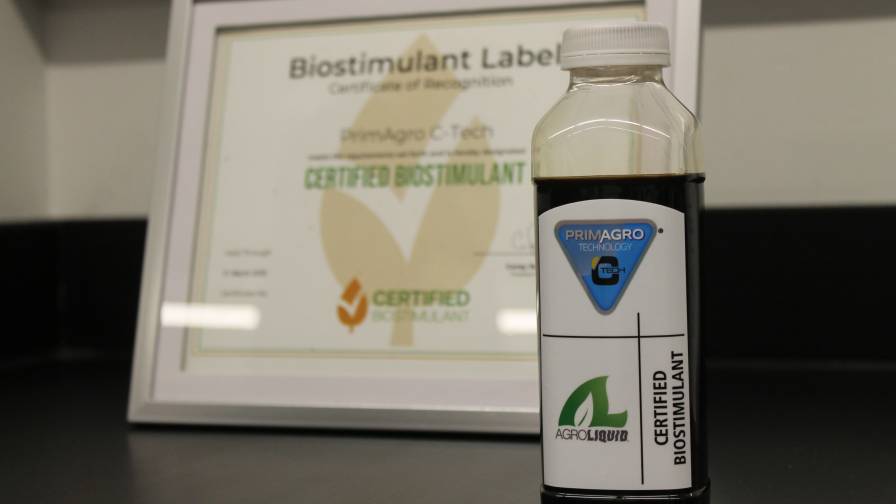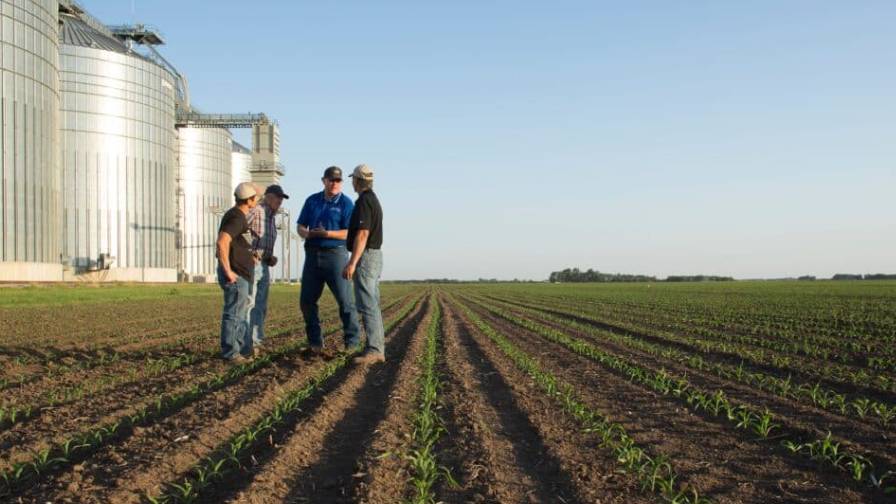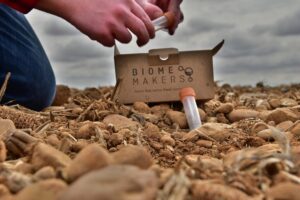For the Sake of the Soil: How the Perception of Biostimulants Has Changed
It all begins with the soil. Healthy soil doesn’t guarantee a healthy crop, but unhealthy soil hinders a good harvest. Biome Makers works with agronomists, retailers, and ag-input manufacturers and equips them with the tools they need to ensure the soil they’re working with and the inputs are fully optimized.

Adrian Ferrero, CEO & Co-Founder
Adrian Ferrero is the co-founder & CEO of Biome Makers. An economist by training with a background in ecology, a passion for nature and an entrepreneurial spirit, Ferrero and his childhood friend Alberto Acedo, PhD., a renowned scientist and an expert in biotechnology, took it upon themselves to team up and lead the change in agriculture to create a more sustainable world. The duo has received recognition for their commitment and excellence. Ferrero has been recognized as a leading entrepreneur by the Spanish government, the EU, and the MIT Technology Review, and Acedo has a number of recognitions such as TR35 España in 2014 by MIT Technology Review, CSIC Investigator and Extraordinary Doctorate Award 2015.
Founded in California’s Silicon Valley in 2015, Biome Makers created BeCrop technology, which decodes soil biology, and enables agricultural decision-making rooted in scientific modeling of the soil microbiome with the goal to optimize farming and regenerate arable soils. With labs around the globe, clients in over 40 countries, and a positive impact on more than 1 million acres of land worldwide, Biome Makers revitalizes soil functionality and agricultural sustainability.
CropLife® magazine reached out to Biome Makers to get some insights on the biostimulant market, what’s driving changes to adoption, and the role retailers play in supporting wider adoption.
How has the perception of biostimulants been changed over the past few years?
Biostimulants have been around for decades, but like most products that act on the biology of the system, they perform well only when the right product is matched with the right soil. Unfortunately, they were often considered ‘snake oil’ treatments because of this inconsistency in effectiveness. However, over the past few years, the perception of biostimulants has changed; they are much more widely accepted, and more research has shown where and when they are effective in improving plant health.

What and or who is driving those changes in perception?
Pioneering farmers, retailers, and producers searching for more sustainable, climate-friendly options, and advanced microbiome DNA sequencing technologies that give them insight to the system-level biology of biostimulants in soils have helped to unlock the science behind biostimulants. We now have a better understanding of how biostimulants work and when they can most effectively be applied for optimal crop health. The science we now have behind biostimulants has shifted the paradigm from ‘snake oil’ to something beneficial. There is still room to grow and a need to continue to change perceptions, but the results of farmers and producers on the forefront speak for themselves.
How have the products that growers are using changed in the past several years?
Hundreds of research trials have gone into determining when and why biostimulants are effective. Over the past several years, growers have worked and collaborated with the industry to improve application methods, formulations, and to hone in on and improve active ingredients for optimal application rates. Many of the products are streamlined and can be integrated seamlessly with current practices.
What can/should retailers be doing to promote the use of biostimulants?
They can take advantage of the tools and technology that are available to them to prove the effectiveness of biostimulants. For example, through the BeCrop Technology, agronomists, retailers, and manufacturers can get a complete microbial analysis and customized interpretation of microbiome based on its biodiversity, vulnerability, and nutrition pathways. They can run field trials and track the effects of ag-inputs and measure agricultural input performance. This is a tool to demonstrate with quantifiable data the efficacy of products and recommendations.
I am very aware how hard it is to build trust, especially if it has been lost once already. Biostimulants have come a long way. Attending demonstration trials and field days where effective use of biostimulants is shown is highly encouraged. Research the science behind biostimulants, learn about the biology of soils and the role the microbiome plays in plant health.
Where are the biggest opportunities for biostimulants?
I believe biostimulants and biological products have great opportunities in all aspects of plant health but see the most potential in plant nutrition. With fertilizer prices at all-time highs, we need to harness the ability of soil microbial communities to solubilize nutrients stored in the soil in inorganic forms. Using these products can help reduce fertilizer applications, while also increasing soil health and functionality.
What are the challenges that could inhibit growth?
I think the biggest challenge to the biostimulant market right now is with defining biostimulants themselves and proving that they work. Not utilizing the available tools to demonstrate the performance of inputs will delay adoption and growth.
What does Biome Makers offer the biostimulant space (i.e., new products, services, etc.)?
Biome Makers’ BeCrop technology offers the biostimulant space validation for the role their product(s) offers in agriculture.
Biome Makers provide insight to the microbiome of the soil through BeCrop Technology, the standard for soil health and a validation tool that producers and agronomists can use to see how biostimulants work.
- For farmers and agronomists, BeCrop Test provides a meaningful report on soil nutrient cycling, health, and biodiversity on any field, anywhere, with a user-friendly, data-driven picture of the global functions of the microbial networks.
- For retailers, manufacturers, and producers, BeCrop Trials uses field trials to track the effects of agricultural input performance over time. We can now assess the effectiveness of agricultural inputs and product recommendations with quantifiable data based on the global standard of soil health, using the soil microbiome as a reliable biomarker.
What else do we need to know?
We offer free training and certification to agronomists who are interested in learning more about biostimulants and the use of the BeCrop Technology. BeCrop Advisors (BCAs) are becoming leading experts in soil health. They work with growers, retailers, and manufacturers to match the right solutions to the most pressing challenges farmers face. With the knowledge of the cutting edge BeCrop soil analysis methodology and its field applications, BCAs play a key role in helping growers optimize inputs and take part in the mission to achieve global sustainable agriculture.
BCAs have exclusive access to the BeCrop Platform, becoming experts in biological soil analysis, a powerful technology built upon the most comprehensive global database of 7.7 million microorganisms and a proprietary bioinformatics pipeline. With the BeCrop report, BCAs will be able to assess biological soil health based on microbiome insights on:
- Nutrient cycling (macro/micronutrients)
- Early disease risk detection
- Stress resistance
- Biodiversity and more!







